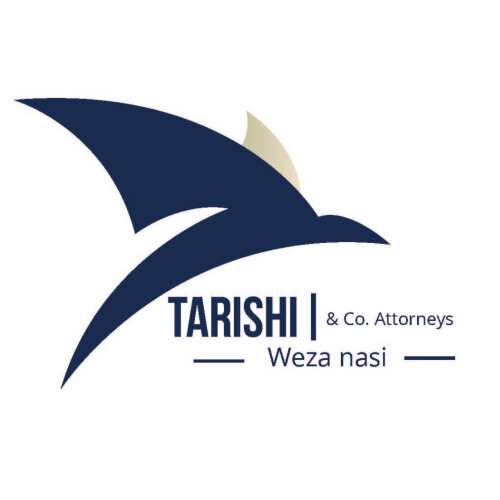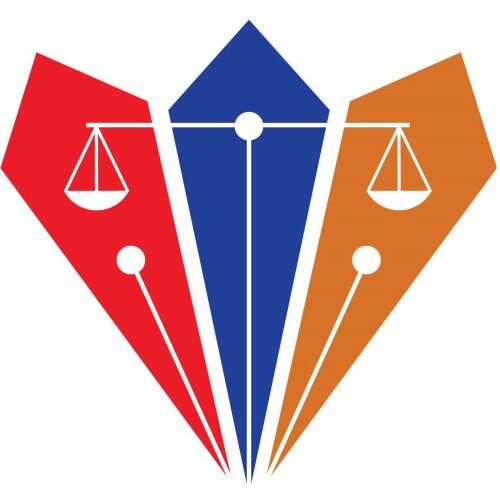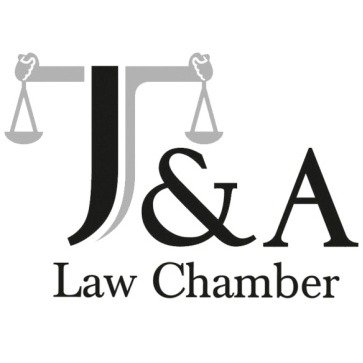Best Sanctions & Export Controls Lawyers in Tanzania
Share your needs with us, get contacted by law firms.
Free. Takes 2 min.
Or refine your search by selecting a city:
List of the best lawyers in Tanzania
About Sanctions & Export Controls Law in Tanzania
Sanctions and export controls are critical aspects of Tanzanian law that govern the movement of goods, technology, and services across national borders. These laws aim to align Tanzania with international obligations, prevent illegal trade, safeguard national security, and promote responsible business conduct. They include restrictions that can be imposed on certain goods, trading partners, or targets as part of global or regional efforts to prevent activities such as terrorism, money laundering, and the proliferation of weapons of mass destruction. Compliance with sanctions and export control regulations is essential not only for businesses involved in importing and exporting but also for financial institutions and individuals engaging in cross-border transactions.
Why You May Need a Lawyer
Legal counsel is crucial when dealing with sanctions and export controls. Here are common scenarios where a lawyer’s guidance is helpful:
- Establishing a business that involves the import or export of regulated goods or technology
- Navigating complex licensing requirements for exporting sensitive items
- Responding to allegations of sanctions violations or unlawful exports
- Dealing with blocked transactions or asset freezes
- Understanding new or updated international sanctions that affect Tanzanian laws
- Advising on trade with countries, organizations, or individuals subject to sanctions
- Drafting compliance programs for companies active in foreign trade
- Addressing customs seizures or inquiries from authorities about imports and exports
- Clarifying dual-use items and technical data controls
Local Laws Overview
Tanzania’s sanctions and export controls framework is shaped by both national legislation and commitments under international agreements. Key aspects include:
- The Export and Import (Control) Act provides the government with authority to regulate and restrict certain commodities’ movement, especially when national interests or security are at stake.
- The Anti-Money Laundering Act and related laws include provisions that support implementation of targeted financial sanctions.
- Tanzania follows United Nations Security Council sanctions resolutions, which are enacted domestically through legal notices and regulations.
- Licensing and permit requirements are managed by government ministries, including the Ministry of Trade and the Tanzania Revenue Authority, particularly for strategic goods such as chemicals, arms, advanced technologies, and dual-use items.
- Failure to comply with sanctions or export controls can result in administrative penalties, criminal prosecution, asset confiscation, and reputational damage.
- Additional sector-specific rules may apply, such as those covering wildlife, minerals, and cultural property.
Frequently Asked Questions
What are sanctions and export controls in the Tanzanian context?
Sanctions are legal restrictions on trade, finance, or other transactions imposed by the government, often following UN Security Council mandates. Export controls refer to laws and rules governing the export of certain goods, technology, or information for security and policy reasons.
Who enforces sanctions and export controls in Tanzania?
Multiple government agencies play roles, including the Ministry of Foreign Affairs, Ministry of Trade and Industry, Tanzania Revenue Authority, and sector regulators. Enforcement may also involve customs officials and law enforcement agencies.
Are there goods that are completely prohibited from export?
Yes, certain goods are strictly prohibited from being exported due to national security, public policy, or international obligations. Examples include military hardware, certain chemicals, and endangered species.
Do individuals need a license to export controlled items?
Yes, if you intend to export items listed as controlled goods, you must obtain the relevant permit or license from government authorities before shipment.
How does Tanzania implement international sanctions?
Tanzania implements United Nations and African Union sanctions through legal notices, regulations, and enforcement actions that make such sanctions locally binding and actionable.
What are the penalties for violating sanctions or export controls?
Penalties may include fines, imprisonment, seizure of goods, revocation of business licenses, and blacklisting from future trade activities.
Is it possible to appeal a decision related to export control or sanctions?
Yes, decisions can often be appealed through administrative channels or, in some instances, in courts. Legal support is recommended for navigating the appeals process.
Are there exemptions to certain sanctions or export restrictions?
There may be exemptions for humanitarian aid, medical supplies, or other special cases, but these typically require official approval or licensing.
How do businesses ensure compliance with sanctions and export controls?
Companies should maintain up-to-date compliance programs, conduct due diligence on trading partners, and seek regular legal advice to keep pace with changing regulations.
Where can I get updates about current sanctions or changes in export regulations?
Updates are typically published by government agencies, in official gazettes, and may also be available through legal professionals and industry associations.
Additional Resources
To gain further insight or assistance regarding sanctions and export controls in Tanzania, consider reaching out to or referencing materials from these organizations:
- Ministry of Foreign Affairs and East African Cooperation - For international relations and sanctions information
- Ministry of Industry and Trade - For export licensing and regulations
- Tanzania Revenue Authority (TRA) - For customs, import, and export procedures
- Bank of Tanzania - For financial and banking-specific compliance issues
- Tanzania Chamber of Commerce, Industry and Agriculture (TCCIA) - For business-related guidance
- Law Society of Tanzania - For finding qualified legal professionals in this area
Next Steps
If you require legal assistance regarding sanctions or export controls in Tanzania, consider the following:
- Gather all relevant documentation related to your situation, such as licenses, permits, correspondence with authorities, and transaction records.
- Contact a lawyer with expertise in sanctions, export controls, and international trade law. The Law Society of Tanzania can help you find a qualified professional.
- Be prepared to discuss the specifics of your case, including the nature of the goods or services, countries involved, and any communications you have received from government agencies.
- Remain up-to-date on changing regulations by subscribing to official government updates or consulting regularly with a legal advisor.
Acting proactively and seeking timely advice can help you avoid serious legal or financial risks and ensure full compliance with Tanzanian and international sanctions and export control obligations.
Lawzana helps you find the best lawyers and law firms in Tanzania through a curated and pre-screened list of qualified legal professionals. Our platform offers rankings and detailed profiles of attorneys and law firms, allowing you to compare based on practice areas, including Sanctions & Export Controls, experience, and client feedback.
Each profile includes a description of the firm's areas of practice, client reviews, team members and partners, year of establishment, spoken languages, office locations, contact information, social media presence, and any published articles or resources. Most firms on our platform speak English and are experienced in both local and international legal matters.
Get a quote from top-rated law firms in Tanzania — quickly, securely, and without unnecessary hassle.
Disclaimer:
The information provided on this page is for general informational purposes only and does not constitute legal advice. While we strive to ensure the accuracy and relevance of the content, legal information may change over time, and interpretations of the law can vary. You should always consult with a qualified legal professional for advice specific to your situation.
We disclaim all liability for actions taken or not taken based on the content of this page. If you believe any information is incorrect or outdated, please contact us, and we will review and update it where appropriate.
Browse sanctions & export controls law firms by city in Tanzania
Refine your search by selecting a city.















